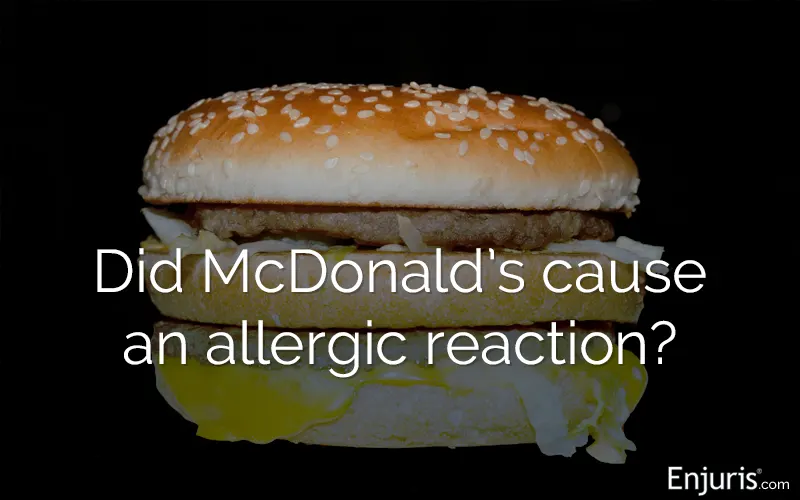
The family of Dr. Kanokporn Tangsuan, a respected Long Island doctor, filed a wrongful death lawsuit against Walt Disney Parks and Resorts and Raglan Road Irish Pub following Dr. Tangsuan’s untimely death from an allergic reaction after dining at the Disney Springs restaurant.
The incident has sparked a conversation about the responsibilities of restaurants to accommodate and protect customers with food allergies.
Understanding the Raglan Road Irish Pub incident and lawsuit
Dr. Tangsuan was on vacation with her husband, Jeffrey Piccolo, at Disney World in October 2023, when they decided to dine at Raglan Road Irish Pub.
Dr. Rangsuan was severely allergic to dairy and nuts, and she and her husband, according to the lawsuit, asked the waiter whether various menu items contained allergens.
After consulting with the chef, the waiter informed the couple that the items could be made allergen-free. The couple questioned the waiter several more times and were unequivocally told that their food would not contain allergens.
Roughly 45 minutes after their meal, Dr. Tangsuan experienced a significant allergic episode while visiting Planet Hollywood. She encountered intense breathing challenges, fell to the ground, and administered an EpiPen to herself. Shortly after, an emergency call was made, leading to her being rushed to a hospital.
She was declared dead upon arrival.
An autopsy by the District 9 medical examiner’s office in Orlando, Florida, determined that the cause of death was anaphylaxis, or a severe allergic reaction.
Dr. Rangsuan’s husband filed a lawsuit on February 22, 2024, alleging that the staff’s negligence in ensuring the meal was allergen-free directly led to his wife’s death.
The couple is seeking damages exceeding $50,000.
A student, three days into college, died from eating dining hall chicken that was cross-contaminated with fish protein. His family sued the university. Learn more.
Disney moves to dismiss lawsuit citing infinite arbitration clause
Disney claimed that the lawsuit filed by Dr. Rangsuan's husband should be handled out of court because he agreed to an arbitration clause when he signed up for a one-month Disney+ trial in 2019. The terms of service he accepted state that any dispute, except for small claims, must be resolved through individual binding arbitration.
So-called infinite arbitration clauses, like the one used by Disney, have become a popular way for large companies to compel parties to resolve disputes through arbitration without limitations, as the clause theoretically applies to all disputes arising from the contract indefinitely.
Dr. Rangsuan's husband's legal team has condemned Disney's tactic as "outrageously unreasonable," arguing that a streaming service agreement shouldn’t apply to a wrongful death claim. They accuse Disney of trying to sidestep a public jury trial by pushing for private arbitration.
Update: Following significant public outcry, Disney has dropped its attempt to dismiss the wrongful death lawsuit involving the death of Dr. Kanokporn Tangsuan. In a statement, Disney's Experiences Chairman Josh D’Amaro acknowledged the unique circumstances of the case and emphasized the company's decision to prioritize a resolution for the grieving family. Legal experts, however, have pointed out that the move was likely a calculated business decision, aimed at protecting Disney's public image rather than a genuine epiphany about the appropriateness of arbitration in such cases.
What obligations do restaurants have regarding food allergies?
The lawsuit against Walt Disney Parks and Resorts and Raglan Road Irish Pub highlights the legal obligations restaurants have towards customers with food allergies.
It's important to understand that not all restaurants are required to inform customers about allergens in their food.
In 2022, the U.S. Food and Drug Administration (FDA) revised the Food Code to mandate that restaurants disclose the presence of any of the nine major allergens in their offerings. These updates necessitate that consumers receive written notifications about allergens in unpackaged foods, alongside comprehensive training for food service employees on managing food allergens.
Unfortunately, the FDA Food Code itself isn't compulsory. Nevertheless, 49 out of 50 states have adopted some form of the Code. This means its guidelines are effectively enforceable in those states. Consequently, if you live in a state that has incorporated these specific allergen disclosure requirements of the Food Code into its local laws, and a restaurant fails to inform you about an allergen in your food, you have the right to take legal action for any harm that results from this oversight.
For up-to-date information on the adoption of the Food Code's versions and provisions by various states, consult the FDA’s Food Code webpage.
Moreover, once a restaurant is informed of a customer's food allergy, it becomes the restaurant’s responsibility to ensure the food served to them is free from that allergen. To establish that a restaurant was negligent, patrons must prove the following four elements:
- Duty of care: Restaurants have a duty of care to provide patrons with allergy-free food once they have been made aware of an allergy.
- Breach of duty: Patrons must show that the restaurant failed to satisfy their duty.
- Causation: Patrons must establish a direct connection between the failure to meet their duty and the allergic reaction.
- Damages: Patrons must identify the repercussions of the incident, which might include medical costs and emotional distress.
The most significant challenge in food allergy lawsuits often involves proving causation—the direct link between the allergic reaction and the consumed food.
If a meal includes an undeclared allergen like peanuts, proving causation is straightforward for someone with a known peanut allergy. However, proving causation becomes more complicated in cases of cross-contamination, where the allergen was not intentionally added to the dish but was present due to the kitchen's environment.
How common are food allergies?
A food allergy occurs when the body has a specific and reproducible immune response to certain foods. The response can be severe, such as anaphylaxis, or minor, such as a skin rash.
According to the nonprofit organization Food Allergy Research and Education (FARE), one in ten adults and one in thirteen children have a food allergy. What’s more, the number of insurance claims documenting severe allergic reactions to food has risen nearly 400 percent over the last decade.
Eight foods or food groups account for the most serious allergic reactions in the United States:
- Milk
- Eggs
- Fish
- Crustacean shellfish
- Wheat
- Soy
- Peanuts
- Tree nuts
The Disney World lawsuit's verdict could significantly impact the restaurant industry. As we await the decision, it's hoped that this case will encourage restaurants to reevaluate and enhance their food allergy procedures, promoting a safer dining environment for everyone.
McDonald’s Lawsuit For Allergic Reaction to Cheese in Big Mac
A man checked “no cheese” when placing his DoorDash order, but McDonald’s included cheese on his burger, anyway. Is McDonald’s responsible for his allergic reaction?

